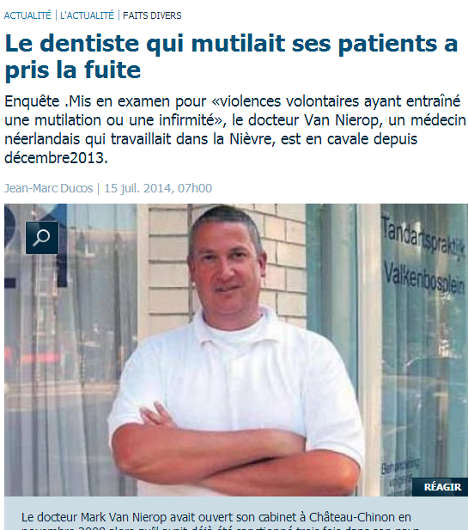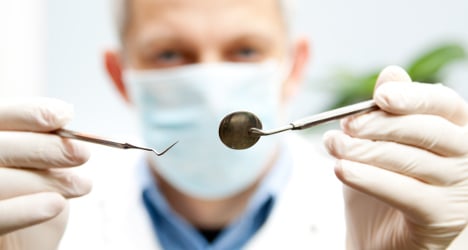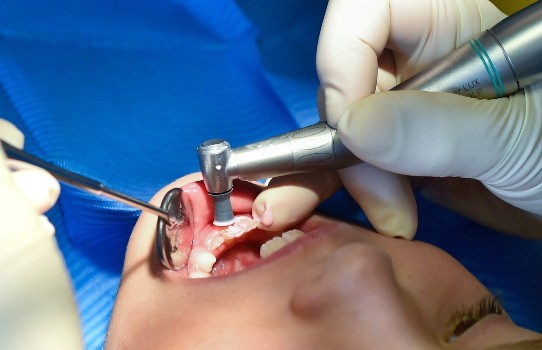Police in France have launched a man-hunt for Mark Van Nierop, a Dutch dentist, who last year was charged with voluntary violence causing mutilation or permanent disability”.
French newspaper Le Parisien reported this week that Van Nierop had not been seen since charges were lodged last year.
The news that he has fled will not go down well with the thousands of patients who were victims of Van Nierop’s apparent dodgy dental work.

(Mark Van Nierop has gone on the run, Le Parisien reported)
The dentist was heralded as the messiah when he set up in Chateau-Chinon in Burgundy in 2008, due to the lack of dentists in the region.
But six years later, the uttering of his name, would no doubt send shivers down the spines of many of his patients, some of whom suffered from recurring abscesses and septicaemia after visiting him in his clinic.
There were also allegations of badly placed implants that pierced patients jaws, healthy teeth pulled out, and broken utensils parts of which were left lodged in gums, Europe1 radio reported.
Van Nierop’s only motivation appears to have been money, rather than the care of his patients, all of whom were advised to undergo blood tests for HIV and Hepatitis C.
“I have lost part of my jaw and I realised that he charged me for 19 treatments in just one session. It’s a monster of a financial scam,” one patient told Europe1.
After numerous complaints from patients who were left “maimed” police opened a probe into Van Nierop in May last year.
An international arrest warrant has been issued.





 Please whitelist us to continue reading.
Please whitelist us to continue reading.
Member comments